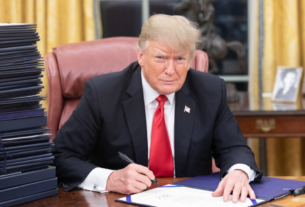Germany needs 288,000 foreign workers annually to sustain its economy, according to a study by the Bertelsmann Stiftung. Despite a slowing economy, businesses across multiple industries are struggling with labor shortages, making skilled migration more important than ever.
Sectors such as healthcare, engineering, and information technology have been hit the hardest. Many companies are unable to fill vacancies, which threatens economic growth and productivity. Germany’s aging population worsens the situation, as more people retire than enter the workforce.
At the same time, the political debate in Germany has shifted toward restricting migration. Recent attacks in cities like Munich have fueled concerns over security, making immigration a highly sensitive issue ahead of the federal elections.
“Germany’s economy depends on immigration,” an expert from the Bertelsmann Stiftung said. He emphasized that without foreign workers, many industries will face significant disruptions, which could weaken Germany’s position as Europe’s economic powerhouse.
Despite this urgent need, Germany’s immigration policies make it difficult for skilled professionals to enter the job market. Strict visa requirements, bureaucratic hurdles, and slow recognition of foreign qualifications deter many potential workers.
Many companies are now looking outside the European Union to fill job vacancies. While Germany has introduced new laws to simplify the immigration process, business leaders argue that these changes are too slow and insufficient to meet labor demands.
Germany faces stiff competition from other countries that are also in need of skilled workers. Nations like Canada and Australia offer faster visa approvals, easier recognition of qualifications, and clearer pathways to permanent residency.
The German government has taken some steps to address the issue. New reforms aim to streamline visa applications and simplify the process of recognizing foreign degrees, but progress has been slow.
“Germany must be more welcoming to skilled workers,” an economist said. He warned that if the country fails to attract foreign talent, it could struggle to maintain its economic strength in the long run.
Despite the challenges, Germany remains an attractive destination for some foreign professionals. High wages, strong labor protections, and a high quality of life continue to draw workers from different parts of the world.
However, many professionals face long waiting times before they can start working in Germany. Some must wait months for visa approvals, while others struggle to get their foreign qualifications recognized.
Language barriers also create difficulties for skilled workers. While some multinational companies hire English-speaking employees, many jobs in Germany require fluency in German, limiting opportunities for foreign applicants.
The government has launched training initiatives to help migrants integrate into the workforce. Apprenticeship programs and vocational training aim to fill labor gaps, but experts say these measures alone will not be enough to meet demand.
Employers are pushing for additional reforms to speed up immigration processes. Technology firms, manufacturing companies, and healthcare providers, in particular, are struggling to find enough qualified staff to meet growing demands.
Germany’s political landscape makes immigration reform complicated. While some politicians support policies that attract skilled workers, others focus on limiting migration due to security concerns.
The upcoming federal election will play a crucial role in determining Germany’s approach to immigration. If stricter migration policies are implemented, businesses may face even greater challenges in recruiting foreign talent.
Germany’s economic future depends on its ability to address labor shortages effectively. Without skilled migration, many industries risk long-term setbacks that could slow down innovation and economic growth.
For now, the country remains in a difficult position. Businesses urgently need foreign workers, but political debates continue to focus on migration restrictions rather than practical solutions for the labor market.
As labor shortages worsen, the pressure on the government to act will continue to grow. Whether Germany can balance security concerns with economic needs remains a key challenge for policymakers.




